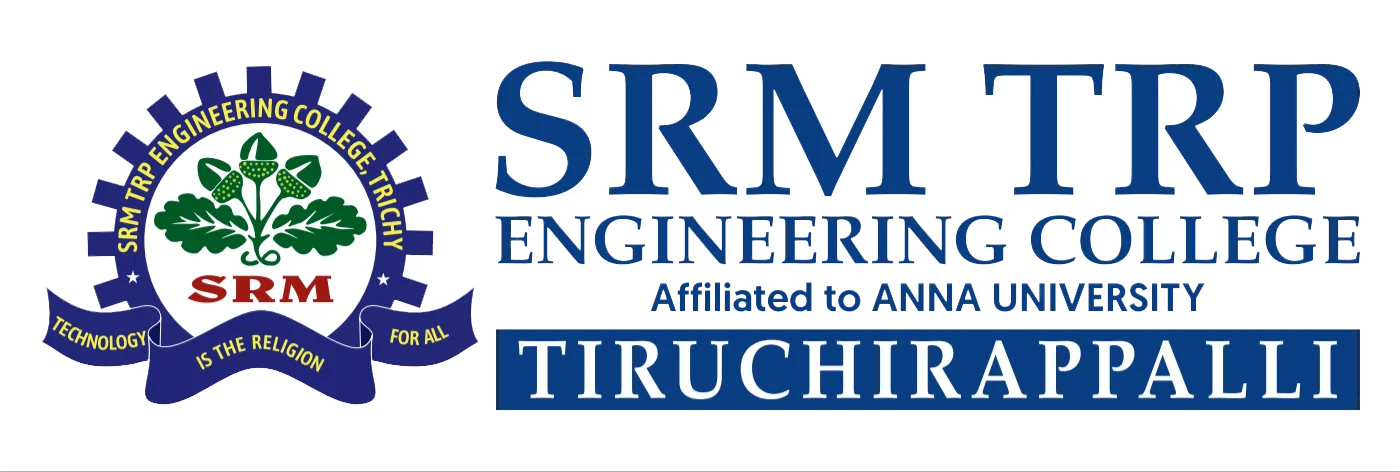Please sign in first
Not a member?

- Home
- About
- Academics
- Research
- Placement
- Admissions
- International Relations
- LIFE @ SRM TRP EC
Laboratory











Electronic Devices and Circuits Lab
It helps the students to empower their knowledge in designing and applications of new generation of electronic equipments. The aim of the Electronics Devices and Circuit Lab is to study the characteristics and applications of semiconductor devices, such as P-N junction diode, Bipolar transistor, Field Effect transistor, LED, LCD & other photo electronic devices and Power control/regulator devices. It also gives an exposure to the practical applications of different types of oscillators and thermostats.
The Electric Circuits laboratory is to impart hands on experience in verification of circuit laws and theorems, measurement of circuit parameters, study of circuit characteristics and simulation of time response. It also gives practical exposure to the usage of CRO, power sources and function generator in various applications.

Electrical Machines Lab
The Electric Machine Lab is to expose the students to the construction and operation of D.C. and A.C Motors-Generators and transformers. It gives the experimental testing skill to students on various Electrical Machines. It also aims to understand the generation of D.C. voltages by using different type of generators and study their performance. It also enables the students to understand the working D.C. motors and their load characteristics, starting and methods of speed control. Further it helps the students to familiarize with the real time applications especially in Electric Tractions, Cranes, Elevators, and Hoists.

Control and Instrumentation Lab
The Control system laboratory provides sound knowledge in the basic concepts of linear control theory and design of control system, to understand the methods of representation of systems and getting their transfer function models. It aims to provide adequate knowledge in the time response of systems and steady state error analysis, to give basic knowledge is obtaining the open loop and closed–loop frequency responses of systems and to understand the concept of stability of control system and methods of stability analysis. It helps the students to study the compensation design for a control system. This lab consist of DC & AC servomotors, Synchros, DC position control, PID controller kit with temperature control, lead lag compensator kit, PLC kit, Stepper ,process control simulator. The aim of Instrumentation Laboratory is to reinforce the students with an adequate work experience in the measurement of different electrical quantities and also to expertise in handling the instruments. It also trains the students in the measurement of displacement, resistance, inductance, torque and angle etc.
Power Electronics Lab
The objective of this Power Electronics laboratory is to study the characteristics of switching devices and its applications in rectifiers, inverters, choppers and resonant converters. It also introduces the application of electronic devices for conversion, control conditioning of electric power. Further it helps the students to get an overview of different types of power semi-conductor devices and their switching characteristics and to understand the operation, characteristics and performance parameters of controlled rectifiers, to study the operation , switching techniques, modulation techniques of pulse width modulated inverters and to understand the harmonic reduction method. The simulation of power electronic converters and motor drives using MATLAB and PSIM are trained in this lab. The applications of phase control in AC voltage controllers and PWM control in inverter fed Induction motors are trained experimentally in this lab.

Power System Simulation Lab
The objective of the simulation Lab for UG is to become familiar with different aspects of modeling of power system components and different methods of analysis of power system planning and operation. It aims to fulfill the objectives such as to model steady-state operation of large-scale power systems and to solve the power flow problems using efficient numerical methods suitable for computer simulation, to model and analyze power systems under abnormal (fault) conditions, to model and analyze the dynamics of power system for small-signal and large signal disturbances and design the systems for enhancing stability. It also aims to become familiar with the preparatory work necessary for meeting the next day’s operation and the various control actions to be implemented on the system to meet the minute-to-minute variation of system load, to get an overview of system operation and control, to understand & model power-frequency dynamics and to design power-frequency controller, to understand & model reactive power-voltage interaction and different methods of control for maintaining voltage profile against varying system. The lab is equipped with 36 numbers of systems with latest configurations and software computing packages such as MATLAB, PSIM.

Engineering Practices Lab
This lab helps the all first year students to learn the basic ideas of electrical, electronics, civil and mechanical engineering tools and gadgets. The basic house wiring methods with wiring tools and wiring for lighting in different areas are practiced. The diode rectifiers and logic gates are trained with circuit applications. The uses of tools, measuring meters and equipments are trained in this lab.